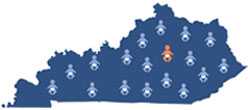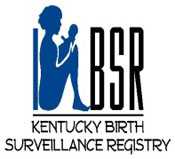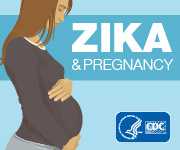Birth Defects Tracking in Kentucky
Kentucky Birth Surveillance Registry

1 in 18 babies born in Kentucky has a major birth defect.
The Kentucky Birth Surveillance Registry (KBSR) is essential for understanding the impact of birth defects in the state. The program promotes early and accurate identification of babies with birth defects and facilitates prevention, planning, and service delivery for families affected by birth defects in the state of Kentucky.
Common. Costly. Critical.
- In Kentucky, nearly 3,000 babies are born with one or more birth defects each year and about 350 pregnancies a year end in a stillbirth.
- Birth defects are costly – hospital costs for the treatment of birth defects are more than $2.5 billion each year in the United States.
- Babies born with a birth defect are more likely to die before their first birthday, compared to babies born without a birth defect.

About the Program
For more than 10 years, the KBSR has served as the primary source of birth defects data in Kentucky. This birth defects tracking system partners with many state programs to refer babies and their families to appropriate health services in their communities. The registry also uses the birth defects data for prevention efforts. One of 14 birth defects programs that receive a grant funded by CDC’s National Center on Birth Defects and Developmental Disabilities, the KBSR monitors about 55,000 births per year.
The KBSR works to:
- Track birth defects in Kentucky and monitor trends over time
- Evaluate the timeliness and quality of the data on birth defects and referral to services
- Support education of the general public and health professionals about the causes, impact, and prevention of birth defects
- Facilitate research studies to help identify causes of birth defects
- Refer babies and their families to appropriate services in Kentucky.
Program in Action
-
Promotes birth defects prevention: KBSR works to help prevent birth defects by:
- Working with the Kentucky Folic Acid Partnership. Since 1997 this collaboration has developed, implemented, and evaluated folic acid promotion efforts. Folic acid is a B vitamin that can help prevent birth defects of the brain and spine, called neural tube defects. Collaboration between KBSR and the Kentucky Folic Acid Partnership led to the “Healthy Babies Are Worth the Wait” Community Toolkit and initiative. As a result, neural tube defects in Kentucky have fallen by 27% between 2000 and 2007.
- Working with Kentucky public schools to educate students and faculty about fetal alcohol syndrome. September is Fetal Alcohol Syndrome Awareness month. During September, KBSR encourages public school principals to share Fetal Alcohol Syndrome Awareness prevention materials with staff in order to spread the word that no alcohol is safe while pregnant and that fetal alcohol syndrome is 100% preventable.
- Teaming up with the Kentucky Substance Exposed Infants Task Force to identify Kentucky counties with high rates of substance abuse. This allows the Task Force and counties to target substance abuse prevention and program planning.
- Educates stakeholders about birth defects in Kentucky: KBSR educates healthcare providers, families, and legislators about preventing birth defects and disabling conditions. KBSR participated in the Substance Exposed Pregnancy summit, which focused on developing a state-wide effort to combat the substance abuse epidemic in Kentucky and to provide help to mothers who have a substance abuse addiction. In addition, KBSR developed fact sheets about specific birth defects, including anencephaly, Down syndrome, encephalocele, gastroschisis, and spina bifida, and distributes them to local genetic clinics and their families.
- Supports families: KBSR helps refer children with a birth defect or disabling condition that qualify to the Kentucky Early Intervention Program (First Steps). This program connects children and their families to appropriate health and development services in their area. KBSR also helps make sure that infants who fail a critical congenital heart defects screening receive follow-up care from a pediatric cardiologist.
- Track birth defects: As a result, KBSR has documented a 27% decrease in the number of babies born with neural tube defects in Kentucky between 2000 and 2007.
Making a Difference
KBSR works with First Steps to connect children with a birth defect or disabling condition to local programs that provide early intervention services. This collaborative effort is helping to make sure that every baby in Kentucky receives the care he or she needs.
“Kentucky’s Early Intervention System (known as First Steps) has worked on increasing the number of children referred to early intervention before the age of 1 for several years. The trend indicates that the number of referrals of children ages birth to one year is increasing. Barriers that impeded referrals from the newborn surveillance program were diminished and an effective mechanism for referrals to the local First Steps offices implemented. Several local offices recorded referrals from the Kentucky Birth Surveillance Program for the first time. We have plans to expand the communication by developing electronic file exchanges in the future to continue this partnership.”

— Paula Goff, Part C Early Intervention Coordinator.
More Information
For more information on the Kentucky Birth Surveillance Registry, please visit their website or call (502) 564-4830 ext. 4394.
- Page last reviewed: May 16, 2016
- Page last updated: September 21, 2016
- Content source:



 ShareCompartir
ShareCompartir